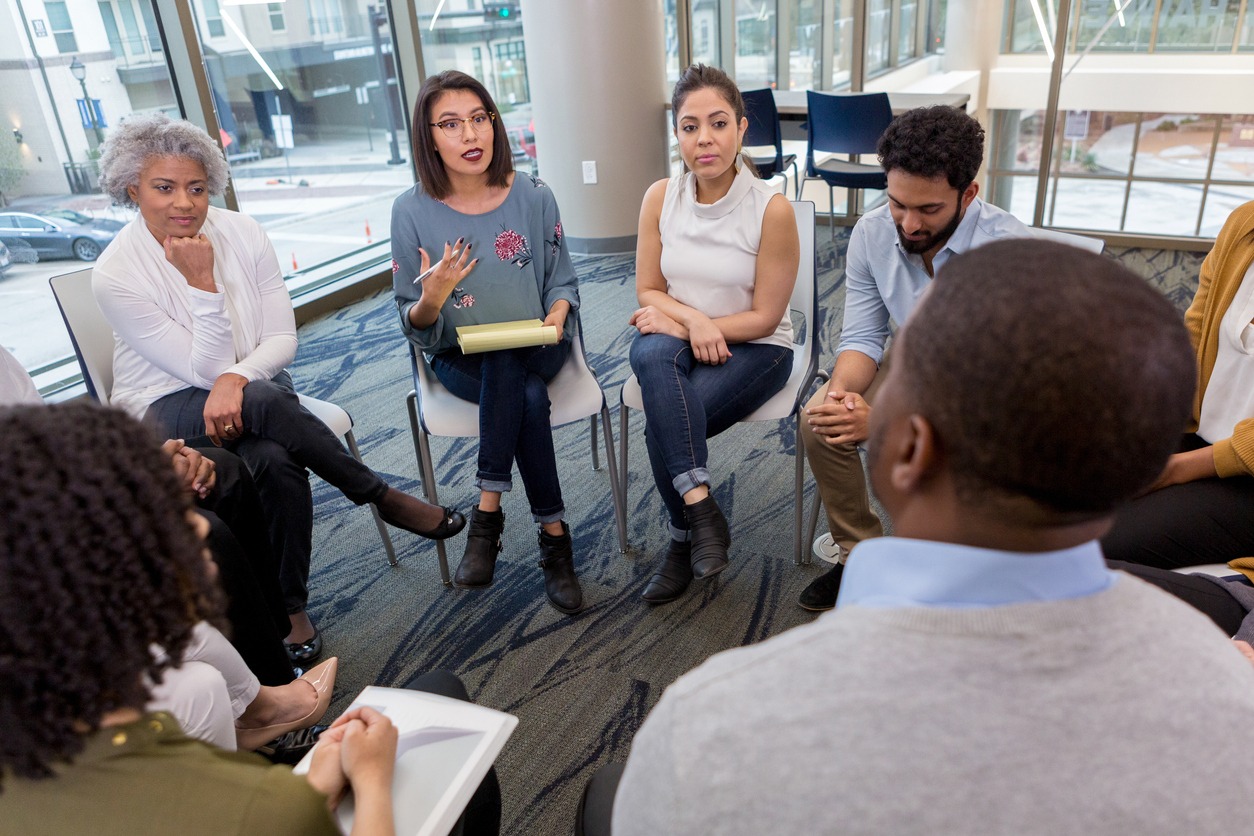Real change requires real conversations
The author shares how to spark more meaningful, substantive dialogue–and how to ensure employees feel heard, valued and seen.

The old saying “make friends before you need them” is truer in business than ever before.
As managers face the crisis of the “Great Resignation,” they’re struggling to retain top talent or maintain the morale of those left behind. We need strategies that help us build trust and respect in the best of times so that in the worst of times, we can benefit from better collaboration, innovation and resilience.
Too often, individuals view conversations as merely a means to an end. Employees and managers approach each other only when they need something or when there is a crisis. Why is this? Well, most often conversations arise out of necessity, such as when there is bad news to communicate about layoffs or poor performance. But that reactive and transactional approach to internal dialogue causes people to fear conversation–and even avoid it as much as possible.
But what if consistent, structured conversation was the secret to unlocking trust, belonging and inclusion within an organization?
The Josh Bersin Company conducted a recent study about companies’ diversity, equity and inclusion DE&I practices. It found that among the 80 DE&I practices and strategies used, candid discussions proved the most valuable and fruitful. What stood out was the approach of “listening, hearing and acting” on what employees deem essential to discuss.
That’s at the heart of the concept of conversation design. It’s about intentionally creating brave spaces for teams to engage regularly with others through meaningful conversations on shared interest topics. No preparation required or deliverable expected. All that’s asked is full participation. No agenda is shared in advance, and a simple format is followed with three questions allowing equal time to share with one voice at a time.

Jenn Graham
This structured format creates safe spaces for people to share stories and speak from lived experiences, encouraging peer-to-peer learning and deep bonds to form quickly. The only way to ensure a productive conversation is to allow time and space for people to look inward rather than point fingers outward.
Self-inquiry leads to full potential
Why do you think therapists and psychologists always ask questions to help their patients? Because they know that all the problems and answers reside within you. People rarely take the time to get to know themselves, and avoiding the difficult work of self-inquiry leads people to never reach their full potential. It’s when we are permitted to share our vices, fears and limiting beliefs stored in our hearts and minds holding us back, that we are set free.
Businesses can’t afford not to engage with their employees. Workers are leaving their jobs in record numbers, in part because of a change in how people view their lives and the world. Some of those who’ve resigned have done so to escape unhealthy and toxic environments with untenable working conditions. They’ve lost trust in their employers.
As leaders, we must change how we engage with employees to help them bring out their highest potential: less monologue and more dialogue. We need to ask more questions, listen more and allow others to participate freely and openly, so they feel safe reflecting and sharing. Fostering this type of culture and environment creates psychological safety for those who are present.
While conversations that educate people about topics such as allyship, belonging and mental health are important, it’s also about increasing awareness and cultivating an environment where people feel encouraged to share their stories, personal experience and convictions as well as hear and empathize with what others have to say.
Reimagining our workplaces and our relationship to the world
The world looks different now than it did in March 2020. The venues might also look a little different, but what hasn’t changed is our need to study our weaknesses by actively looking for them.
With COVID-19’s arrival — and the subsequent shut down of nearly all aspects of society — the need for deeper connections became even more vital. The pandemic launched another transformation as well — a global awakening and growing awareness of racial injustice. We saw it across organizations, communities, countries and individuals. Brands spoke out against racism. But what now?
What matters is not how brands react after a crisis. It’s what they put into practice to prevent it from happening again. Therefore, conversations can’t be a one-time occurrence or training. Real change requires real commitment and a cadence of conversations that allows people to build awareness, understanding, trust and bonds that will outlast times of crisis.
Ultimately, all people want their voices recognized and heard. Safe spaces which encourage people to share their stories help foster real conversations that drive real change.
Jenn Graham is the founder and CEO of Inclusivv, bringing diverse voices together for conversations that matter.






